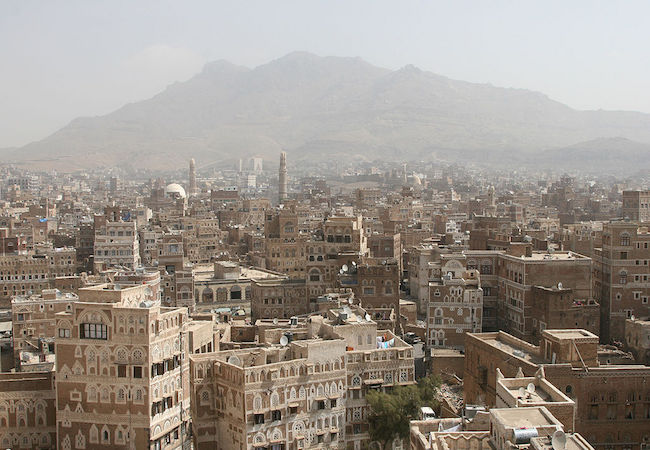Yemen: Is this war necessary?

By Rene Wadlow
During the Second World War in the United States, there was a government-sponsored publicity campaign to save car gas with the slogan “Is this trip necessary?” The aim was to show that if one really asked the question, many trips were not really necessary. We can ask the same question about wars today. In Yemen, is the Saudi-led war really necessary?
A new round of conflict-resolution meetings has started on 20 April in Kuwait facilitated by the United Nations and led bu Ould Cheikh Ahmed of Mauritania who had been earlier the UN humanitarian coordinator for Yemen and so knows the country and its many factions well. There was an exchange of prisoners at the start as a good-will measure.
A four-step conflict resolution outline has been proposed by a number of governments and non-governmental organizations such as the Association of World Citizens:
- an immediate ceasefire ending all foreign military attacks;
- humanitarian assistance, especially important for hard-to-reach zones;
- a broad national dialogue;
- through this dialogue, the establishment of an inclusive unity government.
The title of the aggression of Saudi Arabia against Yemen changed its name from “Operation Decisive Storm” to “Operation Restoring Hope” probably on the advice of the public relations firm which advises the US Pentagon on the names of its operations. Saudi bombing from the air of cities, hospitals and refugee camps, created a storm, but the results were in no way “decisive”. It is not likely that Saudi bombing will ”Restore Hope”.
There is wide agreement in UN circles and among conflict-resolution NGOs that Yemen is a quagmire, with a free-fall of its economic and social infrastructure and with constant violations of the laws of war. The country is on the eve of a new division between the north and the south. The country’s present form dates from 1990 when south Yemen (Aden) was more or less integrated into the north, but the country remains highly fractured on tribal, sectarian, and ideological lines, with the tribal structures being the most important.
Negotiations among the multitude of factions in Yemen will be difficult. The most likely pattern will be or the country to split into two again with each half having a number of relatively autonomous regions. In the best of worlds,one could envisage a federal Yemen with the rule of law. More realistically , we can hope that these autonomous tribal areas do not fight each other actively. On a short term basis, we can hope that there will be minimum cooperation among the factions to allow necessary food imports and medical supplies.
Poverty and the lack of a political horizon seem to be the continuing fate of Yemen, but violent internal conflict and Saudi aggression may not be permanent. With the start of negotiations, there is a role for NGOs to encourage the efforts in contacting organizations and individuals that might have a positive impact on events. There are many geopolitical and economic interests who want “peace” on their terms. Thus, our role as world citizens seeking a relatively just compromise solution is ever-more important.




